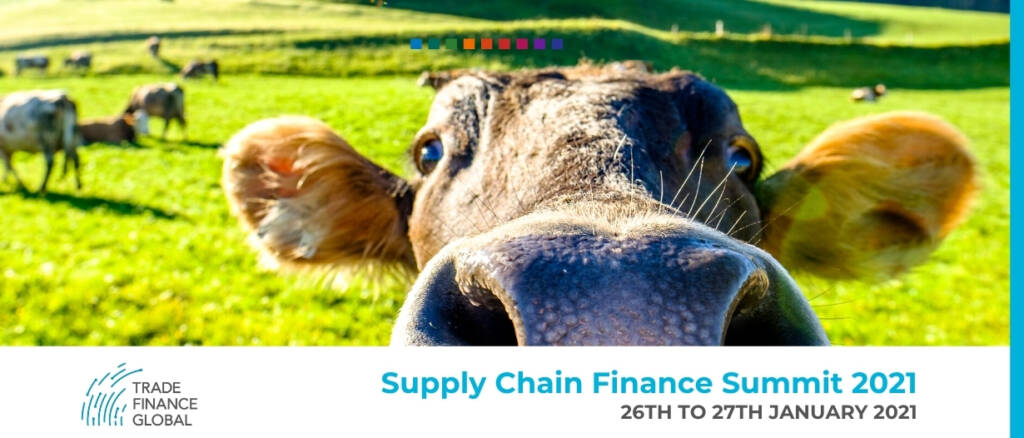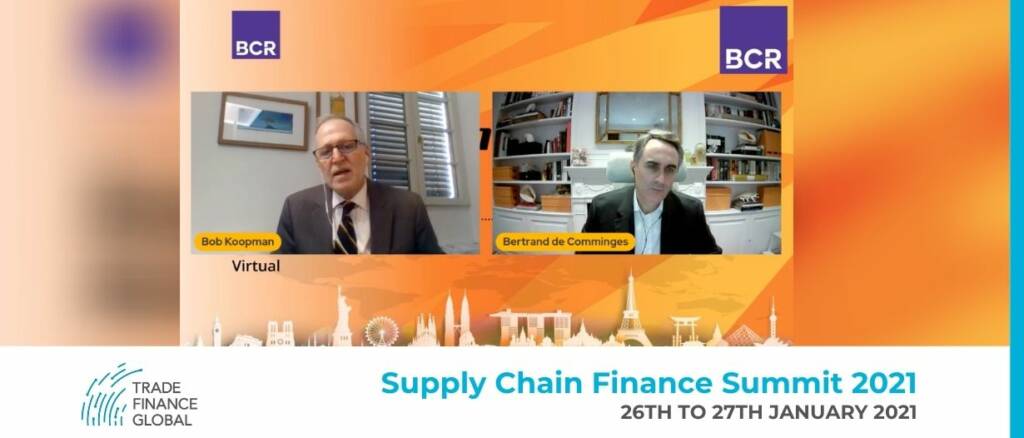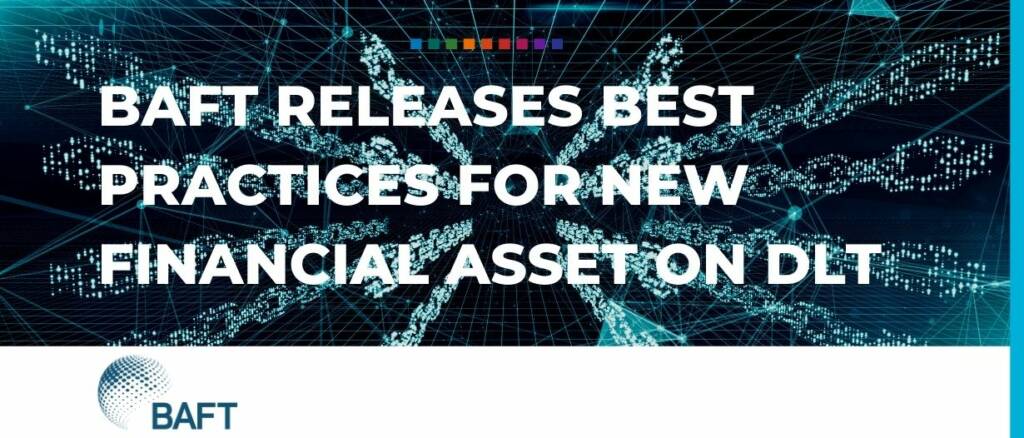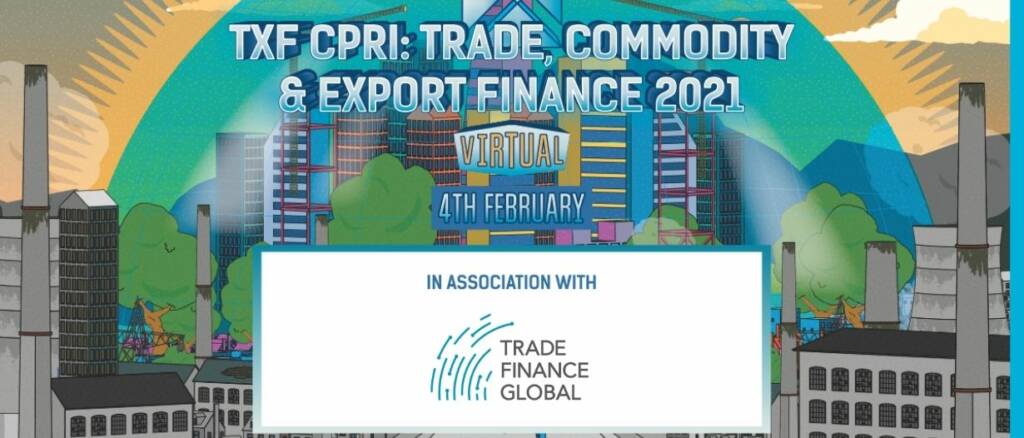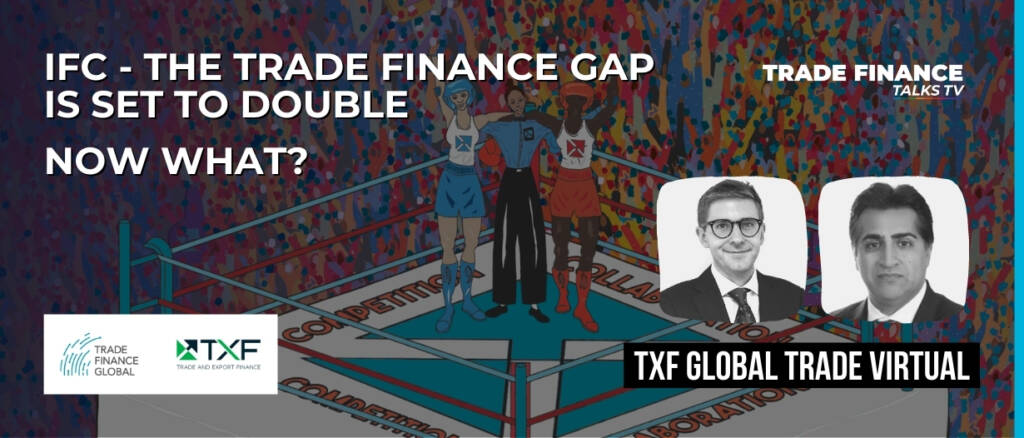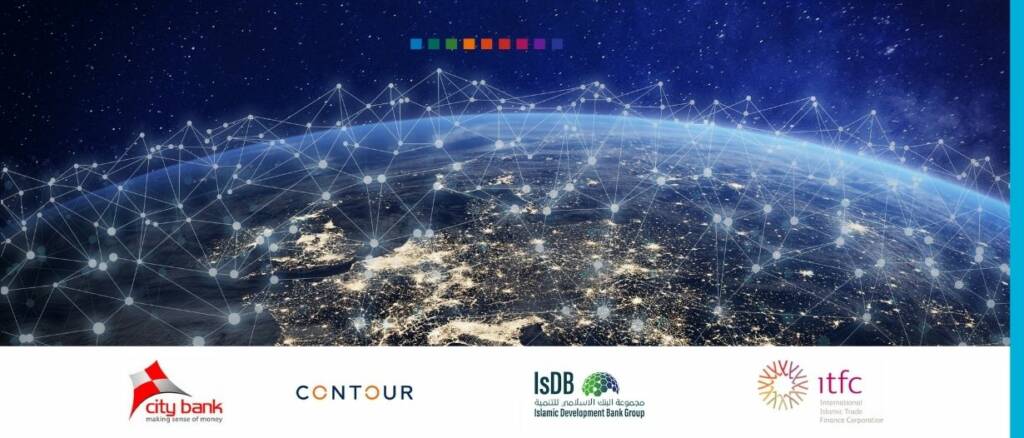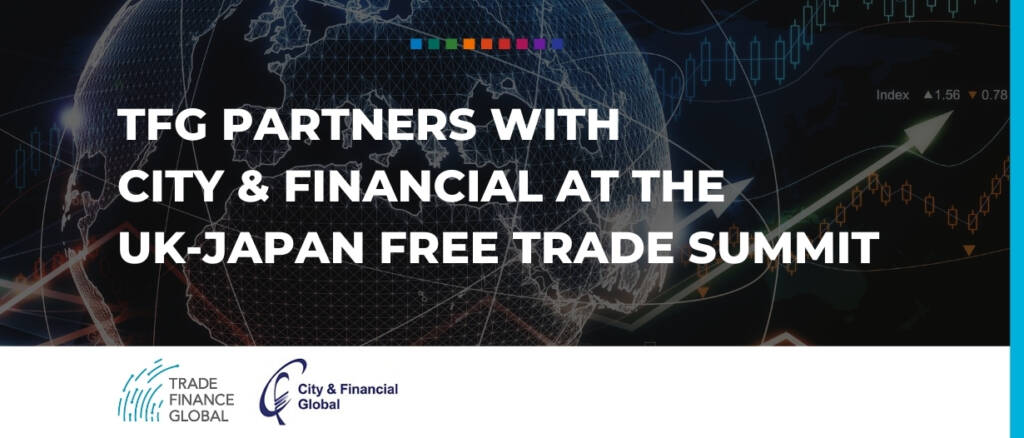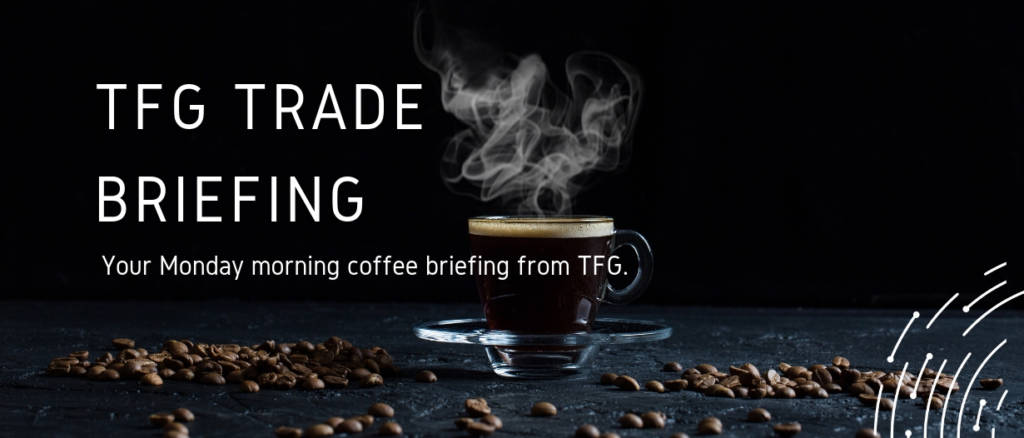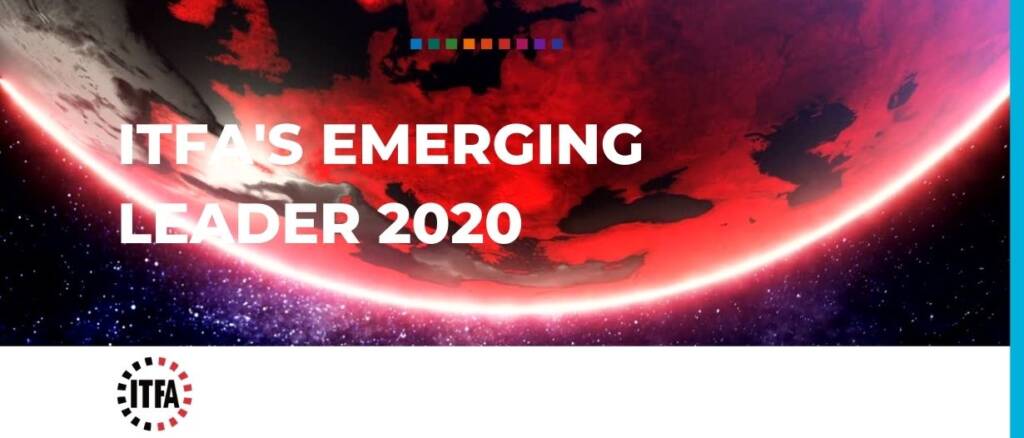Payables finance is changing, often driven by the demands of corporates, looking for inclusive and sustainable programmes when considering who to select for supply chain financing (SCF) programmes.
The two-day BCR Publishing Supply Chain Finance Summit got underway this morning, boasting important names from the supply chain finance sector and banks including HSBC, Lloyds and ABN AMRO. What… read more →
Investigating the use of distributed ledger technology to expedite the digitization of trade finance, the BAFT Innovation Council established the DLPC working group in 2016. It was tasked with producing… read more →
We are excited to be partnering with TXF at the upcoming TXF CPRI: Trade, Commodity & Export Finance Virtual 2021.
TFG’s Mark Abrams spoke to IFC’s Qamar Saleem, about the role of DFIs in assisting MSMEs in the short and medium term COVID-19 recovery.
City Bank has become the first Bangladeshi bank to execute a cross-border Letter of Credit (LC) transaction under a Shariah-based financing arrangement executed using blockchain technology.
Announced: latest confirmed speakers for the UK-Japan Free Trade Summit: A Shared Political, Economic and Financial Vision for Mutual Benefit (20 January).
Your Monday morning coffee briefing from TFG. Talks between the UK and the EU on their future relationship continue without a breakthrough, and the UK government placed London and much of South East England under tier 4 restrictions.
December 15: Contour, the global trade finance network has today announced that HSBC has become the first full production member of the network following Contour’s commercial launch in October this… read more →
Today the winner of the ITFA Emerging Leader 2020 competition was announced – TFG reports on the winning entries, aimed to make a significant contribution to the trade finance sector.















